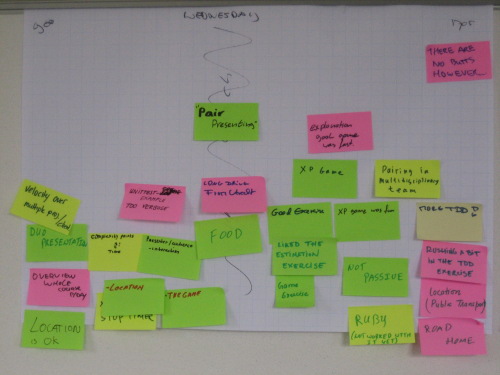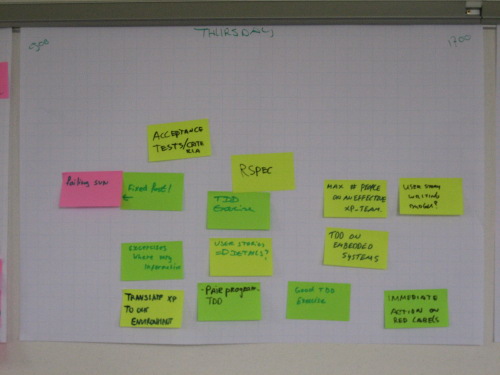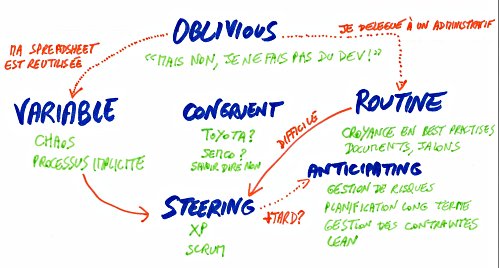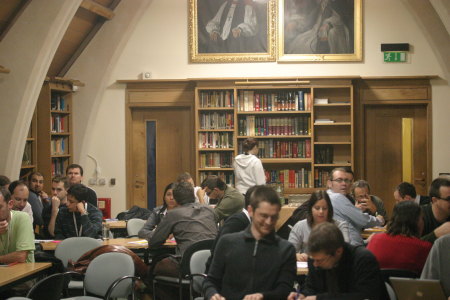
This was the only ‘red’ card in the retrospective we held today at the end of another eXperience Agile 

Further there was one looking ahead (‘Drink & book’ -meaning looking forward to drinks in the bar and receiving the book at the end of the course).
Personally I also loved ‘no more questions’ (I guess there will be more after a night of sleep). One thing we experimented with was shortening the iterations in Day 3′s exercises, so we would have time for a bit of questions and answers ‘open space’ style (or XP style – questions on post-its prioritized by the participants).
We had quite a number of ‘puzzles’ on Wednesday and Thursday, mainly open questions… And some red cards. Most related to traffic jams. Other cards we resolved quickly (not enough overview on the agend for the course – easily done with an extra flipchart, another one was that we had two pairs working off the same repository by accident, we still have some manual steps in installing workspaces that we do not yet know how to automate well due to the environment we are using. ).


Seeing the green cards, and the happy, exhausted faces, there probably was quite a bit of accelerated learning going on – and that is not a coincidence.
I ‘m especially pleased to see green cards where we used to have red and yellow – dilligent work, and keep on trying to improve a few things each and every course. I don’t know what we’re going to change in the next one (we have some ideas around acceptance testing and have been experimenting), but I’m sure we are going to change some things. We, the ‘instructors’ are also part of the learning community, and I strongly believe our own learnings accelerates that of the other participants.
Therefore we hold retrospectives after every course day. Sometimes in the afternoon, sometimes the next day. Where it makes sense we ‘stop the production line’ and fix problems immediately, e.g. answer questions and gather questions for further discussion in a separate block or over lunch. In other courses this also helped us streamline exercises, the build environment etc.
As you might see in the green and yellow cards, much fun (green cards) and puzzles (yellow cards) come from the open source tools and games generously donated to the world. This includes the xp game, ruby, rspec, test/unit (included in ruby), firewatir, and of course techniques like XP, Refactoring and TDD that you can (amongst many sources) still read about on the C2 wiki and the XP mailinglist. And of course retrospectives.
I hope these happy colourful photos inspire you to experiment with retrospectives. A word of warning… besides focusing on what you can do better, don’t forget to celebrate the green cards (I have that tendency – still a bit of a perfectionist) and relax before the next round of improvments. Have a nice weekend 









